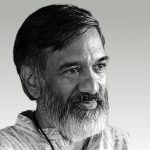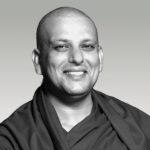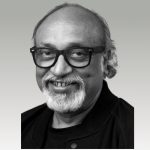Podcast Themes
Multiple perspectives on a topic that you are curious about!

Raghu speaks about his journey on three fronts as an action researcher – Understanding how Systems work, Study of Yoga in depth with Krishnamachari, Process work with Prof Pulin Garg. He also speaks about how he has experimented and engaged with institutions like the Murugappa Group, TCS and Core Healthcare. He speaks about how he has used some of these organizations as a laboratory to try and develop some leadership development and culture building approaches that have been tried and tested.

Tom speaks about how our approach to learning shifts as we go through the various stages of learning something – Novice, Advanced beginner, Competent, Proficient and Expert. He speaks about how we initially focus on learning the rules involved but as we go up the learning curve, we need to get comfortable with the evolving context around us and that can require a very different approach.

Tom speaks about how kids learn and how they keep changing the nature of experiments they do to make the learning “less brittle”. He speaks about his insights from the Infant Action Lab in New York University where he saw how children experiment their way into learning and what we can learn from that.

Venerable Tenzin Priyadarshi speaks about the notion of curiosity and how we can all be truly aware of what is unfolding in front of us. He speaks about how we all need to embrace effortful meditation and practice it for a period of time before it becomes effortless for us. He also speaks about spiritual discipline as something that ought to permeate every aspect of our life from perception to decision making to choices to every interaction.

Atul speaks about how he derives inspiration from legends like Anand Bakshi and Kishore Kumar to ensure that he creates material that has value a few months down the line. He speaks about resisting the temptation to pander to the “flavour of the month”. He also speaks about the effort involved in creating a special show. He suggests that it takes about a year of work to create an hour of good quality stand up material.

BJ speaks about the role of celebration in locking in a habit. He also makes the distinction between a reward that often comes several days, weeks or months later and a celebration, which is often in that moment when you perform that habit. He speaks about the need to hack that emotion to really wire in the habit.

Tasha speaks about the notion of Self-awareness Unicorns, the 50 people they shortlisted from 1000s of people to study them. She speaks about how she arrived at this shortlist and who is in it. She goes on to speak about some of their practices around how they cultivated internal and external self-awareness.

Matt speaks about how he works with athletes to expand their mental reservoir that they can tap into during a big event. He also delves into the detail behind how successful athletes debrief after a failure. He speaks about the importance of a grieving window and the need for perspective where the coach could offer significant value.

Indranil talks about what it takes to build storytelling into a habit. He talks about what deliberate practice looks like in the context of building this capability. He suggests that we need to put a stake in the ground and make a commitment to ourselves. He urges us to look for low evaluative and low judgment situations where this can be experimented and we can get the ball rolling. Most importantly, he talks about the criticality of capturing the stories and tagging them appropriately so that we can recall the right story at the right time.

Jayashri discusses how she splits time during practice. This includes building stamina and preparing your mind to think faster when you perform with other musicians. She also talks about practicing new songs for at least a period of 3-4 months before the music begins to “flow” out of her.

Mouli talks the fact that the time people put in a job is not an appropriate indication of the experience they have gained. He outlines TMRR (Target, Measure, Review and Reflect) as a process through which people could derive a lot more experience than what the average person might get in that time period. He also talks about how people can build in the habit so that they practice it on a regular basis.

KV Sridhar talks about the distinction between creativity and craftsmanship. He mentions that all living beings (not just human beings) including creatures like ants have the ability to be creative. But for us to express it effectively, we need to our craft – whether it is story writing, photography, humour or anything else. And mastering that takes years and years of practice.